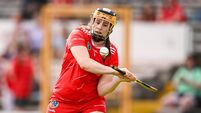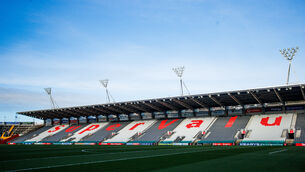GAA talking points: Derry now a model of stability and consistency

CONSISTENT: Gareth McKinless and Niall Toner of Derry celebrate a goal during the game against Dublin earlier in the league. Derry are now a model of consistency. Pic: Ramsey Cardy/Sportsfile
Despite all the close games between Galway and Mayo over the last three decades, when the counties shared the points on the opening night of the league in January, it was the first time since November 1997 that Mayo and Galway had drawn in a league game.










